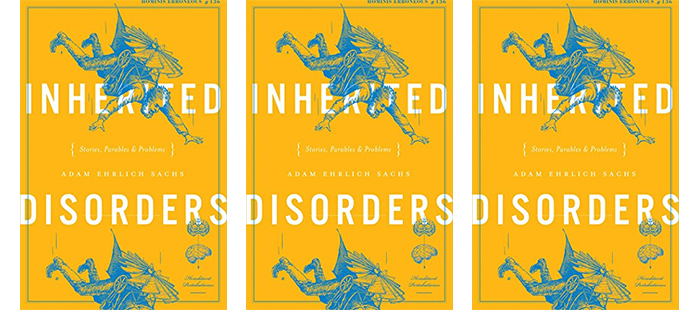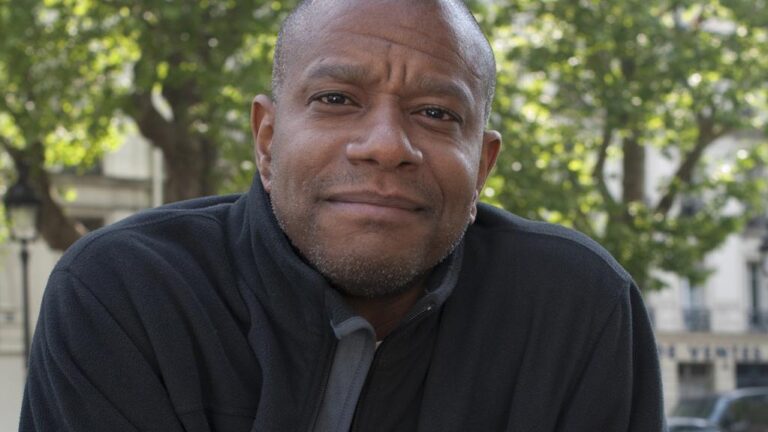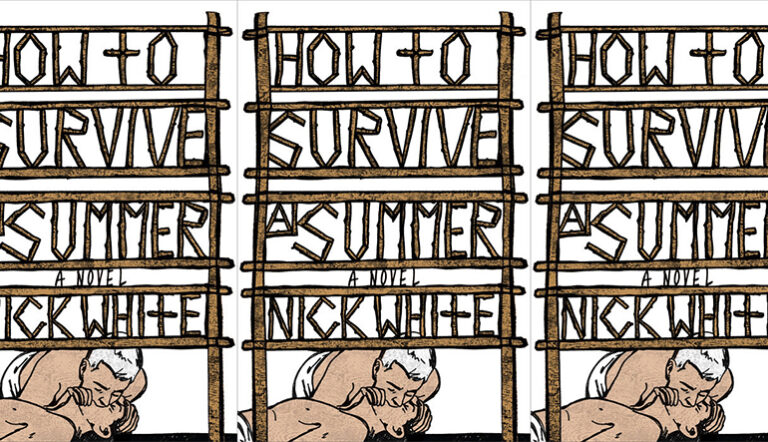Review: INHERITED DISORDERS: STORIES, PARABLES, & PROBLEMS by Adam Ehrlich Sachs

Inherited Disorders: Stories, Parables, & Problems
Adam Ehrlich Sachs
Regan Arts, May 2016
272 pp; $23
Reviewed by Matthew Snider
Fathers haunt us, inspire us, reject us, and even unintentionally destroy us with their legacies. The relationship between fathers and sons is one of the less fully explored in literature—less than that between siblings, between spouses, or even perhaps between mothers and sons. It’s a relationship about which its participants seem so unsure of themselves and for which many writers have shared, or at least perpetuated, that uncertainty.
Inherited Disorders is a series of reflections on the father/son relationship delivered in 117 “stories, parables, and problems,” as the book is subtitled. Through the 117 shorts, Sachs gives us lessons, plenty of humor, and ample warnings about one of the most misunderstood and most silent familial relationships. Disorders is a beginning, in bits and pieces, of real literary talent.
Some of the shorts seem like little more than synopses for what might have been novels. Others, like the subtitle suggests, have the flavor of modern-day parables and seem best suited for the format. It’s an undeniably mixed bag but that’s hardly to say it’s uneven. With only a handful of exceptions, it’s clear each piece has something important to say and ends at just the right moment. In fact, other writers—and perhaps other publishers—would do well to share the confidence that Sachs has in knowing exactly when he’s said enough.
The shorts are wide-ranging. Some are heartbreaking in less than 500 words; others are unexpectedly hilarious whether outright or with a darker flavor to their humor. Disorders is a contemporary stable of parables not only about fathers and sons, but about the everyday struggle to live one’s life in another’s shadow and about the failure to meet another’s expectations.
Reading these 117 parables of fathers and sons back to back, it’s easy to ignore the skill that clearly went into each one. Many of the stories intertwine around the same themes like the DNA that so many of the characters either seek to escape or fatefully come to embody in mirroring or living contrary to their fathers. But despite the variations on themes, the stories don’t come across as repetitive. In fact, each story’s brevity can help relieve the repetition. For a book subtitled “Stories, Parables, and Problems,” there are undoubtedly plenty of the first two, and given a book about the complexities of father/son relationships, there’s no doubt few immediate solutions to the problems therein.
Some stories do stand alone, as much as can be said about a book like this. Others seem to stitch together a larger sermon. No story embodies this better perhaps than “Siegel’s Shoes,” in which brothers take two different life paths (one fulfilling their father’s wish by giving up his career, the other continuing his career in their mutual discipline). The son who continues to study physics comes to see the universe as infinitely spawning son-universes based on these decisions in which “any interaction between family members brings forth at least one … universe,” because after all, “fathers are not the only world creators.”
Matthew Snider reviews books for PopMatters, and writes on culture, religion, and politics from Maryland.


